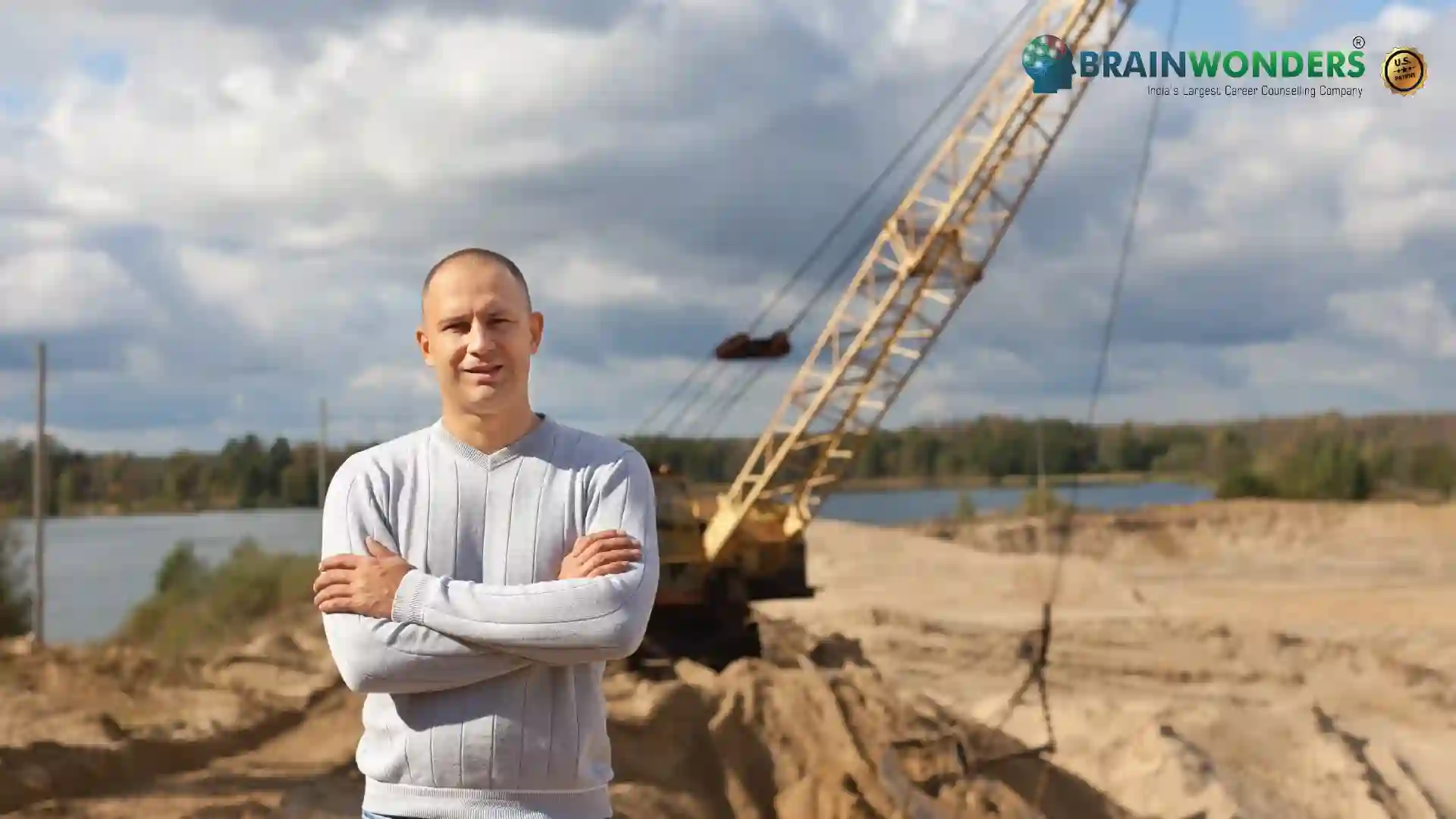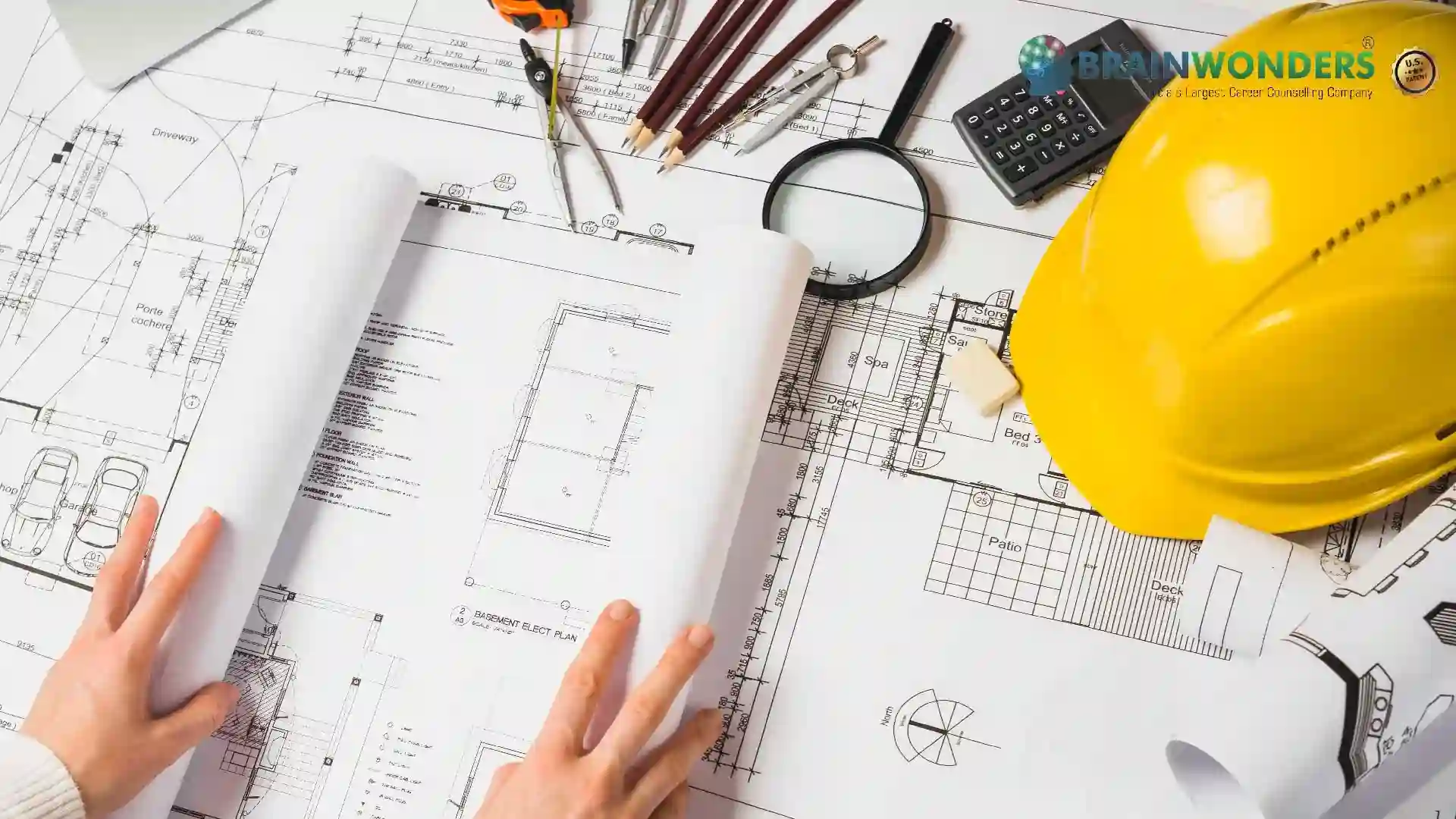How to become a Mining and Geological Engineers
Overview, Courses, Exam, Colleges, Pathways, Salary

Overview
Who is Mining and Geological Engineers ?
Mining And Geological Engineers conduct subsurface surveys to identify the characteristics of potential land or mining development sites. Then, they specify the ground support systems, processes, and equipment for safe, economical, and environmentally sound extraction or underground construction activities and inspect areas for unsafe geological, equipment, and working conditions. Some mining engineers collaborate with geologists to find new ore deposits, while others build new mining tools and manage mineral processing activities. Mining engineers also focus on environmental concerns, advising businesses on mine safety and ensuring compliance with mining legislation, and evaluating facilities for safety risks.
Typical day at work
What does Mining and Geological Engineers do?
- Create technical reports for mining, engineering, and management staff to utilise.
- Inspect mining regions for potentially hazardous buildings, equipment, and working conditions.
- Mineral location, extraction, and production methods should be chosen or developed based on variables such as safety, cost, and deposit characteristics.
- Monitoring production rates and assessing the operation's efficiency
- Solving issues related to water and air pollution, sustainability, and land reclamation
Abilities and Aptitude needed
What are the skills, abilities & aptitude needed to become Mining and Geological Engineers?
- Engineering and Technology - A working knowledge of engineering science and technology. This encompasses applying concepts, processes, procedures, and equipment to the design and manufacture of a variety of products and services.
- Mathematics - Familiarity with arithmetic, algebra, geometry, calculus, statistics, and their applications.
- Production and Processing - Expertise in raw materials, manufacturing processes, quality control, cost analysis, and other strategies for increasing the efficiency of products manufacture and distribution.
- English Language - Knowledge of the English language's structure and content, including the meaning and spelling of words, composition rules, and grammar.
- Design - Expertise in the processes, tools, and concepts used to create precise technical plans, blueprints, drawings, and models.
- Judgment and Decision Making - Weigh the advantages and disadvantages of many possibilities and select the best one.
- Inductive Reasoning - Developing broad principles or formulating responses based on a large amount of particular knowledge.
Salary
Salary for Mining and Geological Engineers?
Salary of A Mining And Geological Engineers is as follows :
- Minimum Monthly Salary for an Entry-Level Mining and Geological Engineer: The starting salary for an entry-level Mining and Geological Engineer can vary based on location, sector of mining, and expertise. In India, novice Mining and Geological Engineers may earn approximately INR 20,000 to INR 40,000 per month as they begin their careers, contributing to various aspects of mining operations and geological exploration.
- Maximum Monthly Salary for Experienced Mining and Geological Engineers: Experienced Mining and Geological Engineers, particularly those who have demonstrated proficiency in designing mining operations, conducting geological surveys, or specializing in specific mining sectors, have the potential to earn a higher monthly salary. Their earnings could range from approximately INR 60,000 to INR 1,50,000 or more, reflecting their advanced skills and significant contributions to efficient and sustainable mining practices.
- Annual Salary Range for Junior and Accomplished Mining and Geological Engineers: With limited experience, Junior Mining and Geological Engineers anticipate a yearly salary ranging from approximately INR 2.4 lakhs to INR 4.8 lakhs. As Mining and Geological Engineers accumulate substantial expertise, gain exposure to diverse geological formations, and excel in their role, they can aim for an annual income from INR 7.2 lakhs to INR 15 lakhs or beyond.
- Highest-Paying Job Opportunities and Scope: Lucrative career prospects for Mining and Geological Engineers are often available in the mining, oil and gas, construction, and environmental sectors. Those specializing in mine design, geological mapping, mineral resource estimation, and environmental impact assessment have a higher earning potential. The role's scope is promising, as Mining and Geological Engineers play a crucial role in optimizing mining operations, assessing natural resource potential, and ensuring environmental sustainability. With growing emphasis on responsible resource extraction, geological exploration, and technological advancements, the demand for skilled Mining and Geological Engineers is expected to rise significantly. This growth offers substantial opportunities for career advancement, specialization, and contributing to sustainable resource management.
Pathways
How to become an Mining and Geological Engineers?
Entrance Exam
Entrance Exam for Mining and Geological Engineers ?
Courses
Which course I can pursue?
Best Colleges
Which are the best colleges to attend to become an Mining and Geological Engineers?
Industries
Which Industries are open for Mining and Geological Engineers?
Mining and Geological Engineers have diverse industries and sectors where their expertise is precious. Here are some industries that offer opportunities for Mining and Geological Engineers:
- Mining Companies: Traditional mining companies, including those involved in coal, metals, minerals, and precious stones, employ Mining and Geological Engineers for various roles such as mine planning, operations management, and resource estimation.
- Oil and Gas Industry: Mining and Geological Engineers play a role in the oil and gas sector, particularly in exploration and drilling activities, reservoir management, and environmental impact assessment.
- Construction and Infrastructure: These engineers are needed in construction projects that involve excavations, tunnelling, and foundation work, where geological understanding and site analysis are crucial.
- Environmental Consulting Firms: Mining and Geological Engineers contribute to environmental impact assessments, site remediation, and compliance with regulatory requirements about land and water resources.
- Geotechnical Engineering Firms: These firms analyse soil and rock behaviour for various engineering projects, including slope stability, foundation design, and earthworks.
- Research and Academia: Mining and Geological Engineers can pursue careers in research institutions, universities, and laboratories, contributing to advancements in geology, mining technology, and environmental science.
- Government Agencies: Regulatory bodies and government agencies related to mining, natural resources, and environmental protection employ Mining and Geological Engineers to ensure compliance, resource management, and safety.
- Consulting and Advisory Services: Independent consulting firms provide expertise in geological exploration, mining feasibility studies, and risk assessment for various clients in the industry.
- Environmental Organisations: Organisations focused on ecological conservation and sustainable resource management often require the skills of Mining and Geological Engineers to assess potential environmental impacts and propose mitigation strategies.
- Remote Sensing and GIS: Utilising remote sensing technologies and geographic information systems (GIS), Mining and Geological Engineers contribute to spatial analysis, resource mapping, and hazard assessment.
- Metallurgical and Materials Industries: In industries that involve processing ores, minerals, and metals, Mining and Geological Engineers may contribute to optimising extraction processes and ensuring resource efficiency.
- Geothermal and Renewable Energy: These engineers may work in geothermal energy projects, utilising subsurface heat sources and contributing to sustainable energy production.
- Natural Resource Management: Organisations and agencies focused on sustainable land, and resource management seeks Mining and Geological Engineers to help manage and protect valuable natural resources.
- Consulting and Contracting Firms: Mining and Geological Engineers may work for consulting firms that provide clients with specialised expertise in geology, mining, and environmental services.
internship
Are there internships available for Mining and Geological Engineers?
Internship opportunities for Mining and Geological Engineers provide valuable hands-on experience and help students and early-career professionals apply their theoretical knowledge to real-world situations. Here are some potential avenues for internships:
- Mining Companies: Major mining corporations often offer internships in mine planning, exploration, geotechnical engineering, and environmental compliance.
- Engineering and Consulting Firms: Companies specializing in mining engineering, geotechnical engineering, and environmental consulting may have internships focused on geological surveying, data analysis, and project management.
- Government Agencies: Regulatory bodies and government departments related to natural resources, mining, and environmental protection may offer internships for resource management and compliance monitoring roles.
- Research Institutions and Universities: Academic institutions conducting geological and mining research may have internships for students interested in hands-on research projects or assisting faculty members.
- Environmental Organizations: NGOs and organizations focused on environmental conservation, and sustainable resource management may provide internships in ecological impact assessment and land reclamation.
- Geotechnical Testing Laboratories: Laboratories specializing in soil and rock testing may offer internships to gain experience analyzing geological samples and data.
- Oil and Gas Companies: Internships in the oil and gas sector may focus on exploration, reservoir management, and subsurface analysis.
- Construction and Infrastructure Companies: Internships related to geotechnical engineering, site investigation, and foundation design for construction projects.
- Geological Survey Agencies: Government geological survey agencies may offer internships involving geological mapping, data collection, and mineral resource assessment.
- Geothermal and Renewable Energy Projects: Internships in geothermal energy projects involving subsurface exploration and resource assessment.
- Metallurgical and Materials Industries: Internships focused on ore processing, metallurgy, and materials science within mining-related industries.
- Remote Sensing and GIS Organizations: Internships in organizations specializing in geographic information systems (GIS) and remote sensing applications for geological analysis.
- Natural Resource Management Agencies: Internships involving sustainable land use planning, natural resource inventory, and environmental protection.
- Mining Equipment Manufacturers: Companies manufacturing mining equipment and technology may offer internships related to equipment design, testing, and optimization.
Career outlook
What does the future look like for Mining and Geological Engineers?
Experienced mining and geological engineers generally supervise new mining and geological engineers. New engineers in major corporations may also undergo formal classroom or seminar-style training. Engineers are allocated increasingly complex tasks as they acquire expertise and experience, and they are allowed more freedom to create designs, solve issues, and make judgments. As a result, mining and geological engineers are expected to have a 10% increase in career opportunities over the next decade. This growth rate is around average. The ban on exports of "rare earth" will provide mining and geological engineers additional chances. "Rare earth" are minerals employed in the manufacture of numerous high-tech products. The limitation of these minerals' exports will promote the research and development of new local mines that produce them, creating an additional need for mining and geological engineers.







